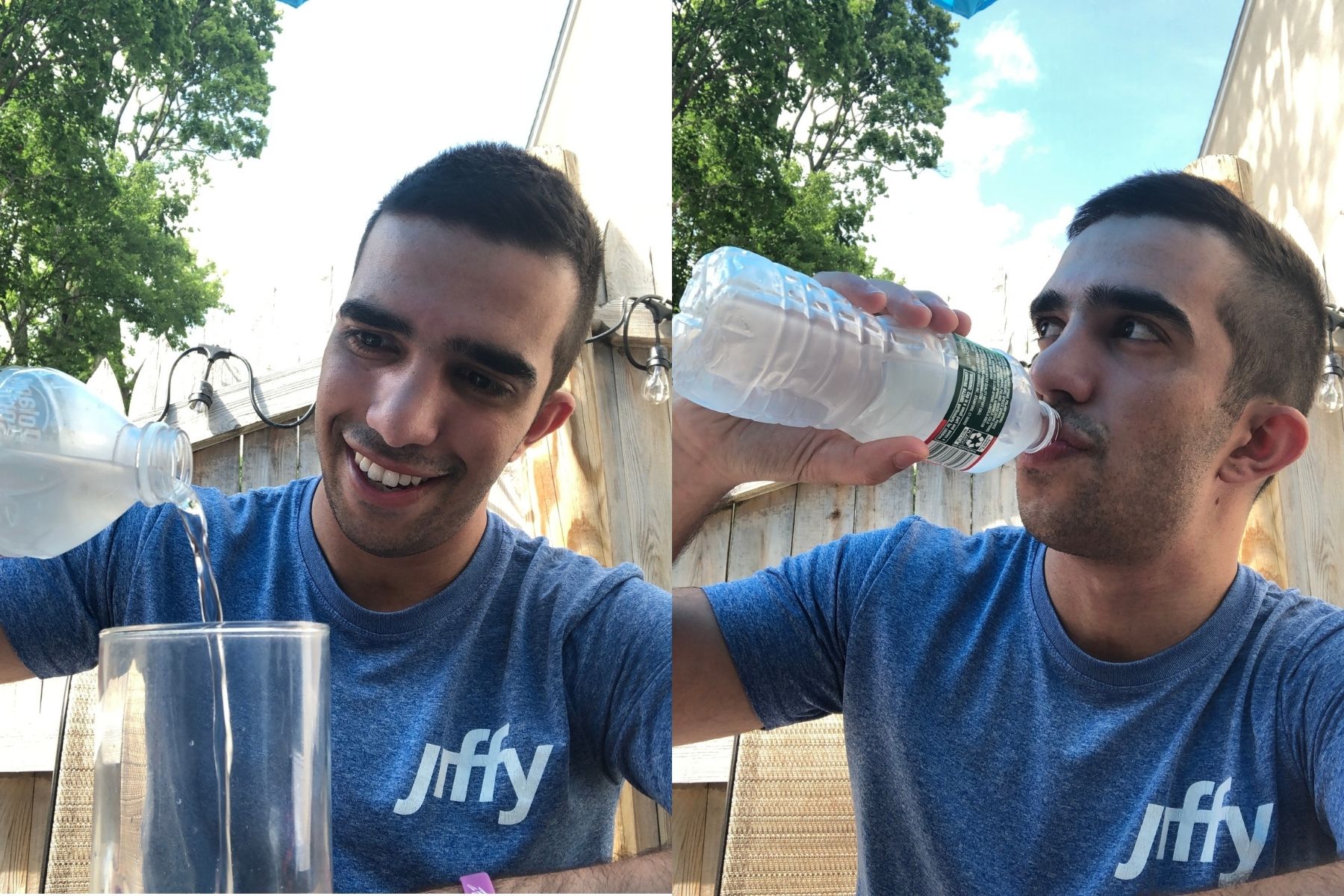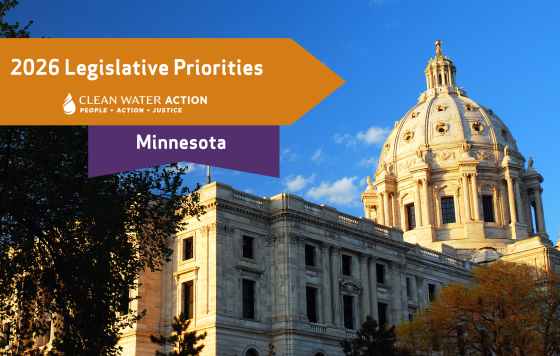
It's recommended that you drink 64 ounces of water per day. Some people drink from a glass, some from a water bottle, or even from a plastic bottle. Now imagine that the safest way to get your 64 ounces, was from six plastic water bottles you could not refill. If you chose to refill them, you would run the risk of getting sick. This was my reality while I was attending Westfield State University (WSU) in Westfield, Massachusetts .
Before I became an intern at Clean Water Action, I went to WSU where I learned that elevated levels of toxic PFAS chemicals were found in drinking water supplies. Westfield’s PFAS issue is believed to have come from a foam used in firefighter training at the Barnes Air National Guard base. For seven months, I lived in a town with contaminated water.
PFAS stands for Per- and polyfluoroalkyl substances and is very harmful to humans. It can enter the environment and our drinking water in multiple ways. Some of the most common include firefighting foam used at military bases and firefighter training centers, leachate from landfills, and emissions from factories that make or use PFAS.
According to The Harvard School of Public Health, PFAS stays in your body forever and can lead to adverse health effects. Some of these adverse health effects include liver damage, thyroid disease, decreased fertility, high cholesterol, obesity, hormone suppression, cancer, and reduced efficacy in vaccines.
Currently, there are no federal laws regulating PFAS in drinking water although the EPA has set a non-enforceable guideline of 70 parts per trillion. Last fall, the Commonwealth, pushed by Conservation Law Foundation, Community Action Works, and Clean Water Action, took matters into its own hands and set a more rigorous health protective limit of 20 parts per trillion for 6 PFAS chemicals in drinking water.
Since the new standard for PFAS in drinking water has been set, more and more communities in Massachusetts are learning that their water is contaminated. Even when drinking water is PFAS free, these dangerous chemicals enter our bodies through a number of different pathways.
One of these pathways is through food packaging! According to Cindy Luppi, Clean Water Action's New England Director, Burger King sells 2,000,000 Whoppers a day that contain PFAS in their wrappers. That’s 2,000,000 people per day ingesting highly harmful chemicals. That’s why Clean Water Action has teamed up with Mind the Store to stop using toxic trash. Far too many people are unaware of the risk that comes with something as simple as a Whopper wrapper. But it doesn’t stop at Burger King! PFAS is also found in other products such as non-stick pans, fabrics, carpeting, personal care products, and stain resistant treatments for clothing and furniture.
The good news is that there are safer alternatives. Clean Water has been working on organizing groups across Massachusetts to highlight the dangers of PFAS chemicals to Massachusetts legislators who are now considering multiple bills to ban PFAS in multiple products. On Tuesday, June 22nd, the Massachusetts Legislature’s Public Health Committee is coming together to hear the bill titled “An Act restricting toxic PFAS chemicals in consumer products to protect our health.” The bill number is H2350/S1387. Tell your legislators to co-sponsor H2350/S1387 and testify in support of it on June 22nd. This bill would ban PFAS in carpets, furniture textiles, aftermarket sprays applied to these products, personal care products, and cookware.
97% of Americans already have traces of PFAS in their blood, making it clear that this is an issue that everyone has a stake in. Drinking clean water is a basic human right. Whether it is you, or someone you love that is in the 97%, we must all take action today. This fight is just getting started!


